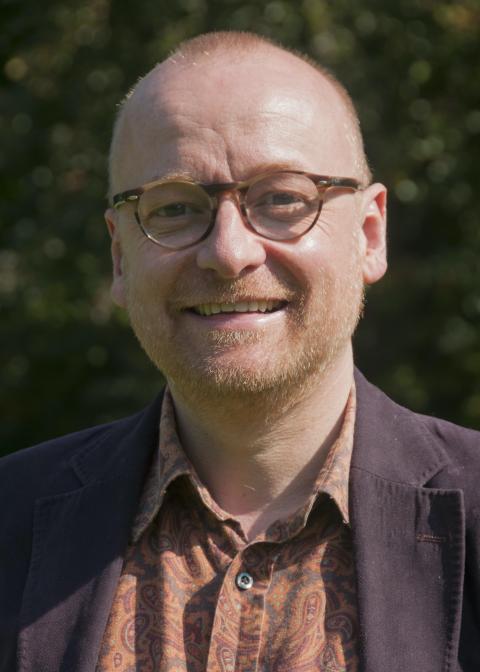Don't see what you're looking for?
Main Site
Berklee.eduCampuses and Schools

Joe Bennett
For media inquiries, please contact Media Relations
Joe Bennett is a musicologist, writer, and researcher specializing in the analysis of popular music and songwriting. As resident scholar at Berklee in the Professional Music and Liberal Arts departments, he teaches classes relating to artist development, music copyright, and song analysis. He has written more than 30 music tuition books, and his compositions for music education are performed by students all over the world. His academic research focuses on the creative practice and psychology of songwriters. As an expert witness forensic musicologist, he advises music lawyers, publishers, artists, and songwriters on matters of plagiarism and musical similarity.
Bennett holds a Ph.D. in music from the University of Surrey and a national teaching fellowship from the Higher Education Academy. At Berklee, he was previously vice president for academic affairs at Boston Conservatory and Berklee Strategic Initiatives. Prior to coming to Boston, he was the dean of music and performing arts, and professor of popular music at Bath Spa University in Bath, England.
- Forensic musicologist and expert witness for songwriting plagiarism disputes for law firms and artists in Europe and the U.S.
- Resident musicologist for TIDAL
- Music journalist with more than 300 articles in print
- Teaching books include transcriptions of the Eagles, the Beatles, U2, and more than 30 teaching books for Music Sales/Wise Music Group
- Guitar, bass, and drum compositions for Rockschool international exams published worldwide
- Music editor for Total Guitar magazine, with interviews and transcriptions including Bon Jovi, Extreme, Robben Ford, and Pink Floyd
- Academic chapters on popular music include work for Oxford University Press, Bloomsbury, and Routledge
- Media appearances/interviews include the New York Times, BBCTV, and the Washington Post
- National Teaching Fellow at the Higher Education Academy
- Ph.D., University of Surrey, music
- B.A., University of Northumbria, music/creative arts
"I want my students to learn something new every time they listen to music. By listening forensically to a song recording we can learn about form, lyric narratives, production techniques, harmony, vocal technique, arranging—in fact, any part of music's creative process."
"Berklee students are a pleasure to teach because of their deep skills and because the curriculum provides such a strong technical foundation in music: ear training, harmony, music technology, and arranging. So when we're analyzing a song, we can say 'that section when the vocal rises a minor third and the low-pass filter slowly sweeps across a six-bar phrase,' or whatever, and everyone on the room just gets it. Then from this technical platform of musical facts, we can talk about what's really important: the way the music makes us feel."
"In my first job as a guitar magazine music editor, I was transcribing music pretty much every day, and this note-for-note immersion led to a fascination with songs and how they are constructed. Then, many years later for my Ph.D. research, I spent five years investigating how commercial songwriters collaborate, through interviews, cowrites, and song analyses, and this helped me to get a better understanding of the creative challenges that our students face when they're developing new material."
"My curriculum outlook leans toward the progressive. I take the view that music exists as a vibrant, living art form in contemporary society and evolves constantly through new technologies, distribution channels, and cultural dynamics. So I ask my students to stay current with the latest tech and to immerse themselves deeply in others' creative work from the most diverse cultural landscape possible. If they can combine technical knowledge, musical skill, and deep, human, artistic empathy, they're all set to create new work that truly moves people."